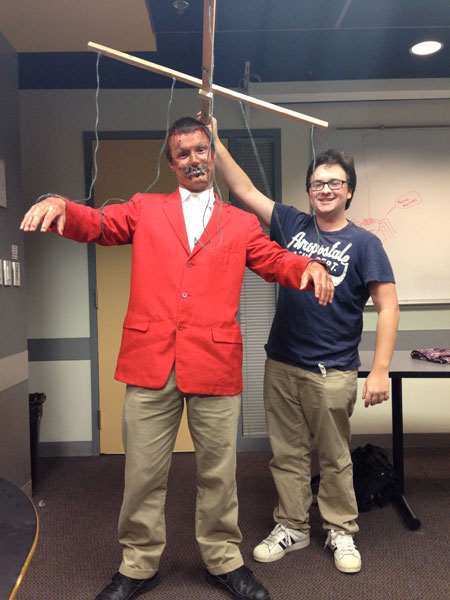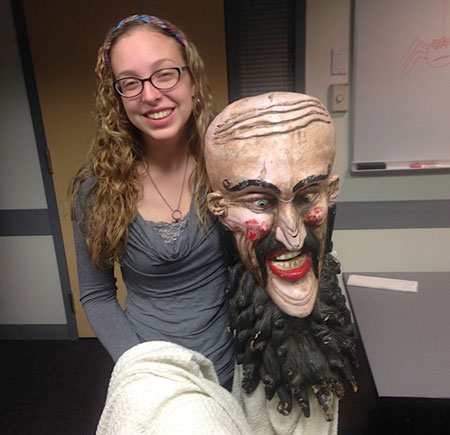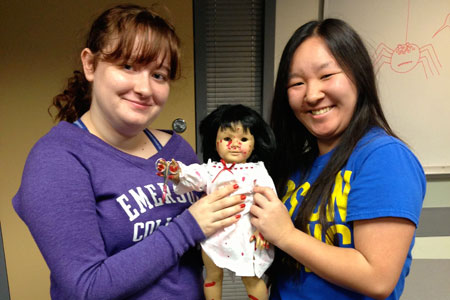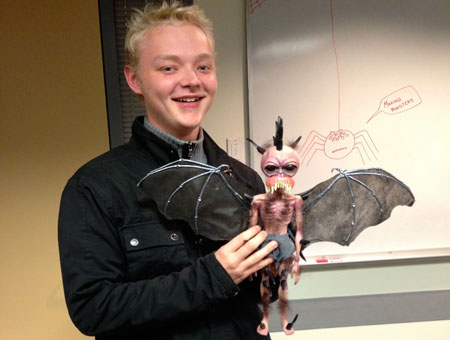Monstrous course load
Students in faculty member Cynthia Miller’s Making Monsters class are staying true to their course’s title this Halloween.
While many of their peers may be finishing exams or midterm projects, these students are creating their own monster puppets complete with background stories based on literature and films in the horror genre.

“Their monsters have to have identities and they have to have background stories, so they really have to think about coordinating the appearance of the monster with what it is about them that’s monstrous,” said Miller, “some sort of horror tradition or horror stories that they’ve been exposed to, inner qualities that end up showing in their physical persona. So it takes a lot of thought to actually make that consistent.”
Students have read and watched everything from Stephen King to Danish zombie puppet Westerns this semester, and were encouraged to draw inspiration from these experiences to create their puppets.

Tristan Donaldson ’17, a Film major, decided to take his project a step further and turn himself into the puppet. He created a voodoo human marionette puppet controlled by a voodoo witch doctor in New Orleans and recruited a friend to do his makeup.
“[A student] did wood grain paint on my face and then she added blood and everything, put the costume on, and attached me to the piece of wood that was supposed to be the marionette handle,” Donaldson said.

“It gets students to be creative and physically and intellectually engage with the material,” said Miller, who teaches in the Institute for Liberal Arts and Interdisciplinary Studies. “I think whenever you have to make something, it asks you to use different parts of your brain. It asks you to think differently about the material and why something works.”
Donaldson said this project and class have helped him find meaning in monsters, which are so common in popular culture.
“It’s always interesting. We always have a strange but enlightening discussion just learning about the context and the meaning of monsters and why they’re so significant to us.”

Categories